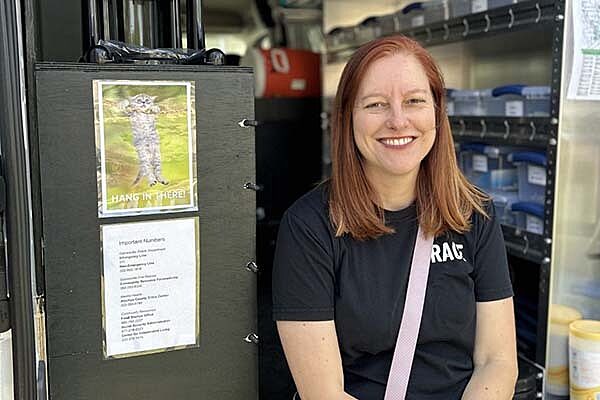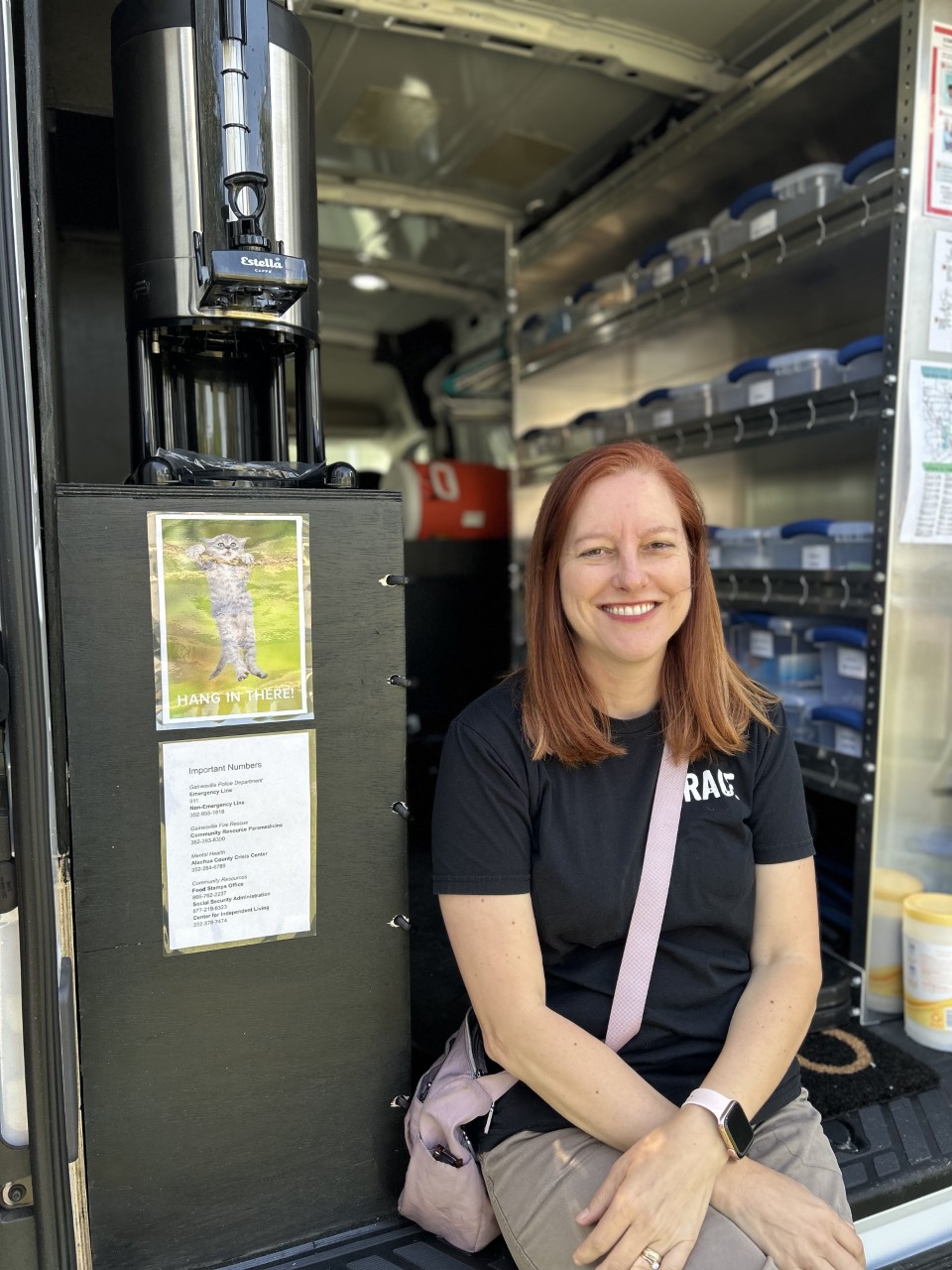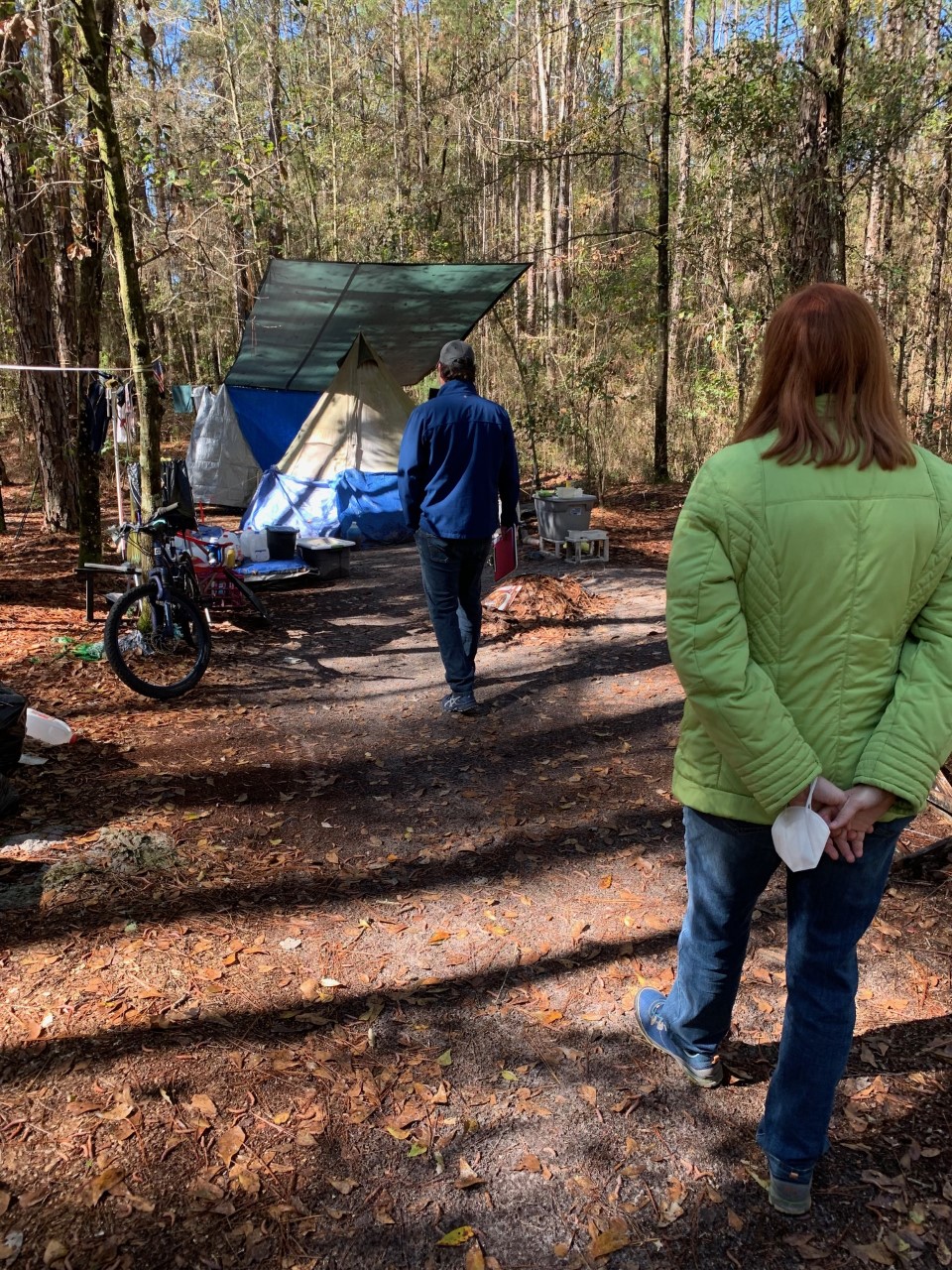Empowering Individuals Facing Homelessness

When Dawn-Christi Bruijnzeel, MD, isn’t busy training UF Health psychiatry residents, you’ll find her embarking on another transformative mission — bringing psychiatric care to the streets of Gainesville.

Bruijnzeel, an associate professor of psychiatry at the University of Florida, leads UF’s Street Psychiatry Program, which was launched in 2022. The program aims to deliver vital psychiatric care to homeless individuals who face significant barriers in accessing treatment.
“It’s an underserved and marginalized population,” Bruijnzeel said. “They are humans like the rest of us who are just as deserving of care as everybody else.”
The program’s primary goal is to empower homeless community members by serving as a bridge, connecting them to long-term housing and comprehensive care, ultimately assisting them in reclaiming stability and rebuilding their lives.
“When people start feeling better and thinking more clearly, it helps drive their motivation to tackle other basic needs, like finding housing,” Bruijnzeel explained. “They are in a better position to advocate for themselves and navigate through the various steps and processes required to secure housing.”
The process
Bruijnzeel works closely with outreach social workers from GRACE Marketplace, a homeless resource center serving Gainesville and Alachua County. GRACE’s Street Outreach team first identifies individuals needing psychiatric care while delivering their services throughout the week, then refers them to the Street Psychiatry Program.
Every Wednesday morning, Bruijnzeel, along with two UF Health psychiatry residents and a GRACE outreach social worker, dedicates four hours to meeting with homeless individuals. During these encounters, they provide items such as food, clothing, bus passes, insect repellent and sunscreen — essential necessities for those living outdoors.
Once someone agrees to receive psychiatric care, the team provides the same type of care one would receive in one of UF Health’s clinics, Bruijnzeel said. This includes a full psychiatric assessment, prescribing medications as needed, establishing follow-up appointments and coordinating with other UF Health providers for any additional medical care needed.
Breaking barriers
Community outreach initiatives like these play a pivotal role in dismantling barriers that hinder individuals from accessing vital mental health care, including challenges such as lack of insurance and the stigma surrounding seeking support.

“Sometimes people are simply unaware that help is available to them,” said Robert Averbuch, MD, a psychiatrist at UF Health and an associate professor of psychiatry at UF. “There’s often a lack of awareness regarding the resources that exist to support individuals in need and the understanding that it’s okay to come and get treated for mental illnesses.”
Averbuch himself volunteers at Helping Hands Clinic, a collective of health care professionals dedicated to providing free health care services to uninsured individuals and members of the homeless community. As part of his involvement, he offers free psychiatric services through telehealth on Monday evenings, helping to ensure that mental health support reaches those who may otherwise go without.
In addition to making mental health care more accessible, Bruijnzeel highlighted that initiatives like these can ultimately save on health care costs for hospital systems.
“When people start feeling better mentally and get off the streets, their physical health improves too,” Bruijnzeel explained. “They don’t require emergency care as frequently as when they were living on the streets. It’s truly beneficial for both the individuals themselves and society as a whole. I think taking care of one another on this planet is our obligation as a society and as human beings, making this work incredibly important.”